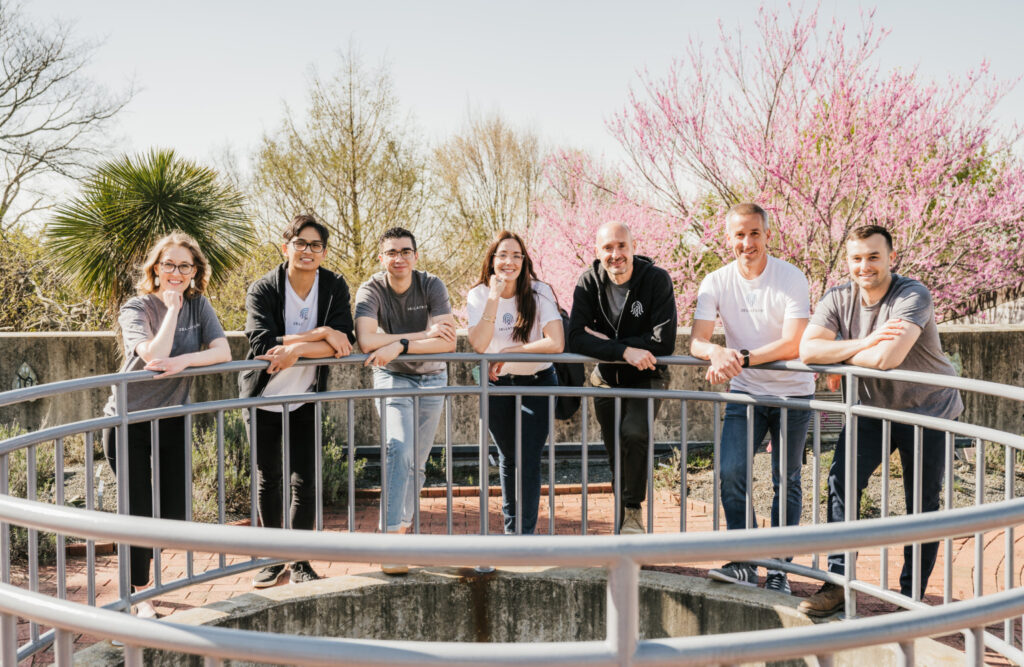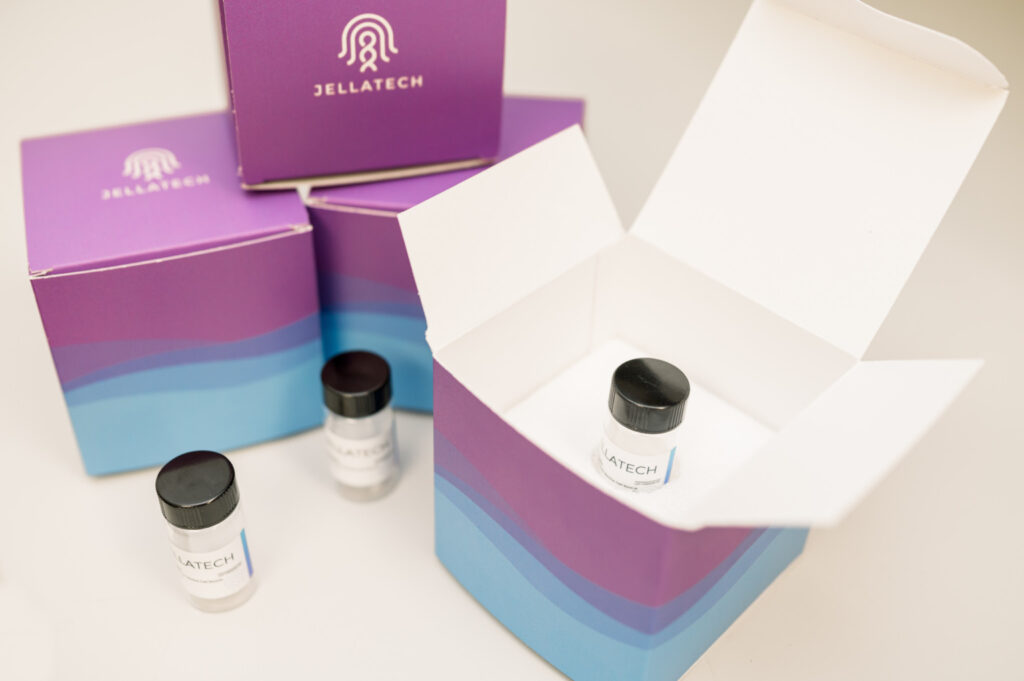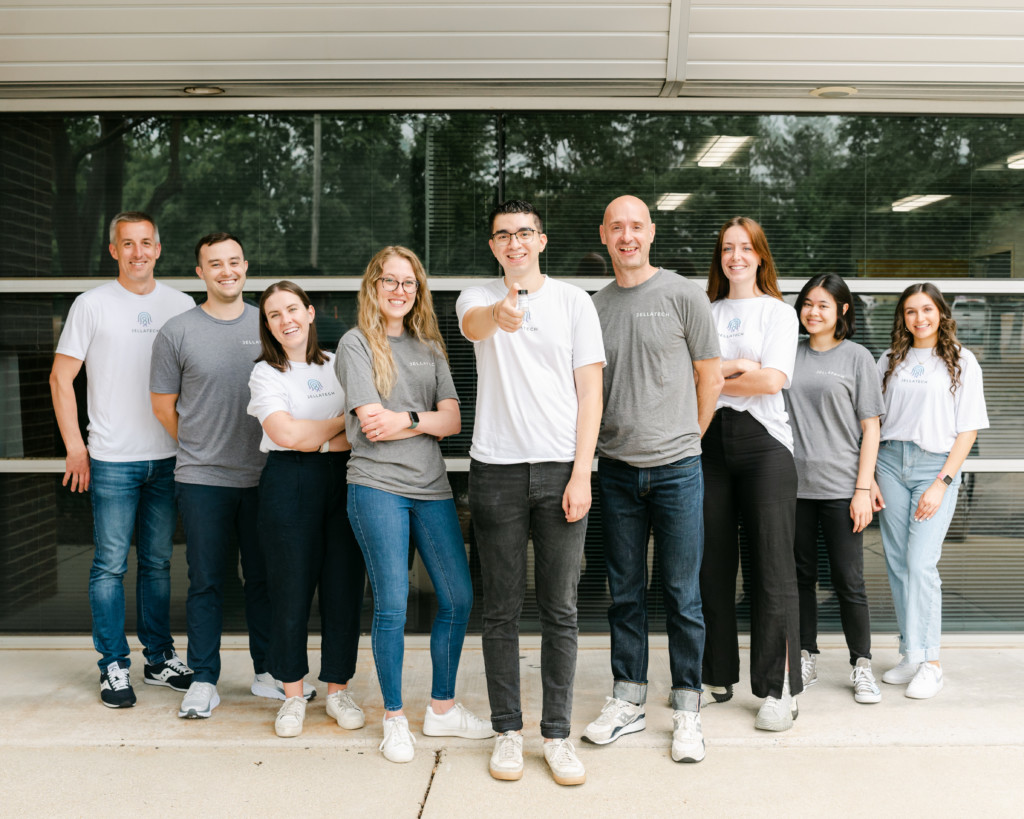Today, June 27th, Jellatech reveals a major milestone in its mission to eliminate animals from the food system, starting with collagen and gelatin: after just two years of existence, the North Carolina team announces the successful development of a full-length, triple-helical and functional collagen made from its own proprietary cell lines.
Founded in 2020 by Stephanie Michelsen, who was included on the Forbes 30 Under 30 list for 2022, the company secured $2 million in seed funding last year and just recently received a strategic investment from cellular-focused VC firm CULT Food Sciences.

Collagen — a by-product of the meat industry — is widely used across various categories in a highly lucrative market totalling around $8.4 billion. Demand for the ingredient is increasing due to its common usage in food texturizers, vaccine stabilizers, pill capsules, and the clarification of wine and beer, amongst many others. Currently, however, the protein is only found in animals; therefore various emerging biotech firms are working on the removal of animal cruelty from the equation, including Geltor and Aleph Farms.
While other companies are using fermentation and plant-based collagen, Jellatech says these applications are more limited in that they are not bio-identical to that of animal-derived collagen and as such are unable to provide the same functionality. This is the problem Jellatech has now been able to solve through its cell-based collagen technology.

CEO Stephanie Michelsen comments today: “It is becoming more and more evident that we need to change many of our existing practices and the way that we sustain our planet. This achievement just shows that we have a way and now we have laid the stepping stones for a sustainable future of protein production.”
Senior Scientist Christopher Gilchrist states: “Collagen formation is a complex process that requires specialized machinery found only in mammalian cells. We’re working to harness the innate ability of these cells to produce collagen that is bio-identical to native collagen and do it in a sustainable and animal-free way.”

“We’re thrilled to see that our cell-derived collagen appears bio-identical to collagen derived from animals. Because of this, we have a wide range of exciting applications from biomedicine to cosmetics to food and beverage,” adds Rob Schutte, Head of Science.
The race to save our planet and its inhabitants is on; it starts with food, but goes far beyond that, says Jellatech. And it’s true that the use of animals and animal cruelty is all-encompassing and omnipresent. Investors and innovators such as these must continue to find animal-free solutions across the board.
To find out more, go to www.jellatech.com








